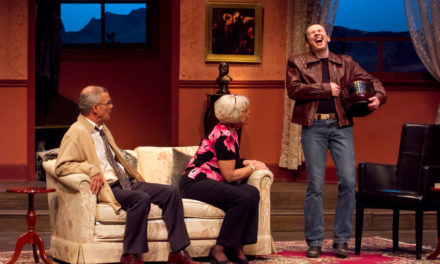A wonderful experience of intimate theatre.
Distancias Cortas is a scenic production that presents four extracts from three plays by excellent contemporary playwrights, creating scenic proximity to the actors, where the audience is practically inside the scene.
The conception and direction of this new production is the idea of Pepe Homs, who, through a new theatrical aesthetic, immerses us in the texts of Cat on a Hot Tin Roof and A Streetcar Named Desire, by Tennessee Williams, and Betrayal, by Harold Pinter. These scenes reflect the reality of everyday events and situations – love and lack of love; betrayal and passion – and thanks to the fiction created on the stage we can have a magical theatre experience within a short distance and witness how complicated human relationships are.
Through Distancias Cortas’s use of short stories, the audience connects immediately with the characters, due to the great Peter Kelton’s adaptation of the texts.
The success of this format lies in the texts as well as the performances. The plays are presented in different places in a hotel that were wonderfully selected to achieve a more intimate connection with the spectators. It represents a great opportunity for the actors to approach and perform theatrical art very close to the audience.
This mise-en-scène has been performing at La Casa del Atrio Hotel, in Queretaro, Mexico, where the audience moves through different spaces, so the actors perform four moments in which they show us the breakup of a couple, the revelation of hard truth, a terrible confession and a betrayal.
It is presented in Spanish and English, and it will also be presented in San Miguel de Allende.
“Bringing to life the stories of these wonderful authors unites my theatrical passion with the creation of intimate spaces; both ideas are mixed in one fact: the magical art of telling stories. Each scene was selected to show the kind of stories that, as a hotelier, I have seen inside the walls of my hotel. These powerful scenes are mixed with the calm and serenity of the patios and balconies of the hotel; there is a dialogue between them,” said Pepe Homs, the director and creator of and an actor in the play.
The concept of this kind of theatre was born in Holland in 1930, and since then it has spread to different parts of Europe and the United States.
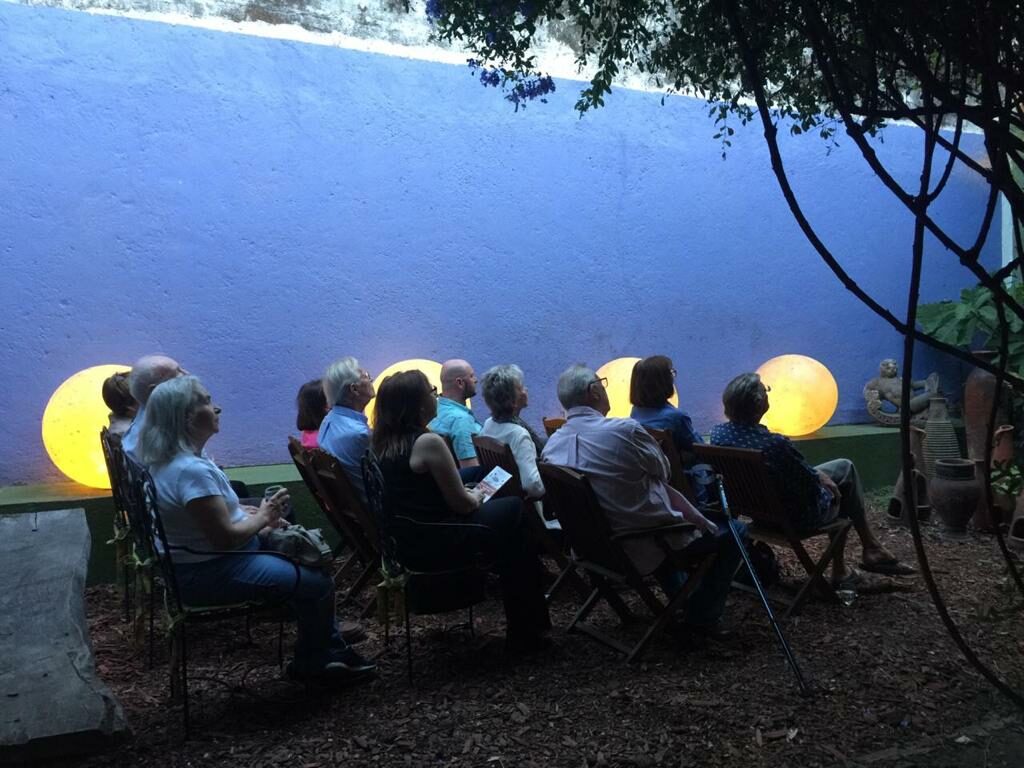
The public watching A Streetcar Named Desire. Photo by Lorena Meeser.
Cat on a Hot Tin Roof
Tennessee Williams’s play, which won the Pulitzer Prize for Drama in 1955, features motifs such as social mores, greed, superficiality, mendacity, decay, sexual desire, repression, and death. With this play Williams opens the door to the intimacy of a family that is full of rancor, hatred, and ambition, overturning the myth of the “happy family”. The main theme relies on “lies and liars.” It is inspired mostly by experiences linked to his own life: the constant opposition between the hypocrisy and falsity of social conventions, as well as its dominant and aggressive characters and the figure of marginalized people.
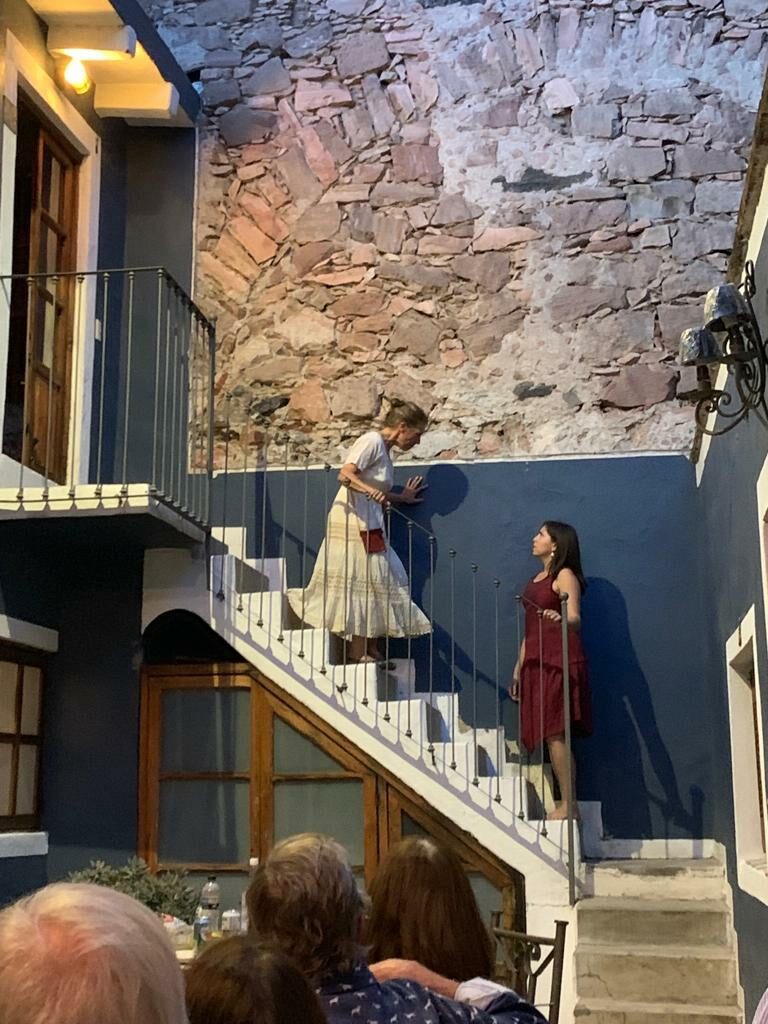
Amanda García and Marcela Blondo in A Streetcar Named Desire. Photo by Lorena Meeser.
A Streetcar Named Desire
The title of the work is a double allusion: to the vagaries of erotic love and to the first tram that Blanche Dubois must take before climbing a second, Cemeteries, which leads to the Champs Elysees, the paradisiacal resting place in Greek mythology where men and women who have lived virtuously are admitted. In this play, also written by Tennessee Williams, Blanche Dubois arrives at the new home of her sister, Stella, and her brother-in-law, Stanley Kowalski. The piece reflects racial, economic and social tensions between the old American South and the “new” South, which must adhere to racial and class integration, and highlights the loss of property and privileges of the former landowners. The characters balance between stereotype and contradiction, abuse, sex, social classes, aging, loneliness, violence, relationships between men and women. Secrets, the concept of reputation, the treatment of madness and the effects of a traumatic experience. Within his work, Williams covers complex issues that never go out of style. All this makes it a classic that inspires different reflections in each setting.
Actors:
Balcony scene: Rocío Meré and Román García.
Scene on the stairs: Amanda García and Marcela Blondo.
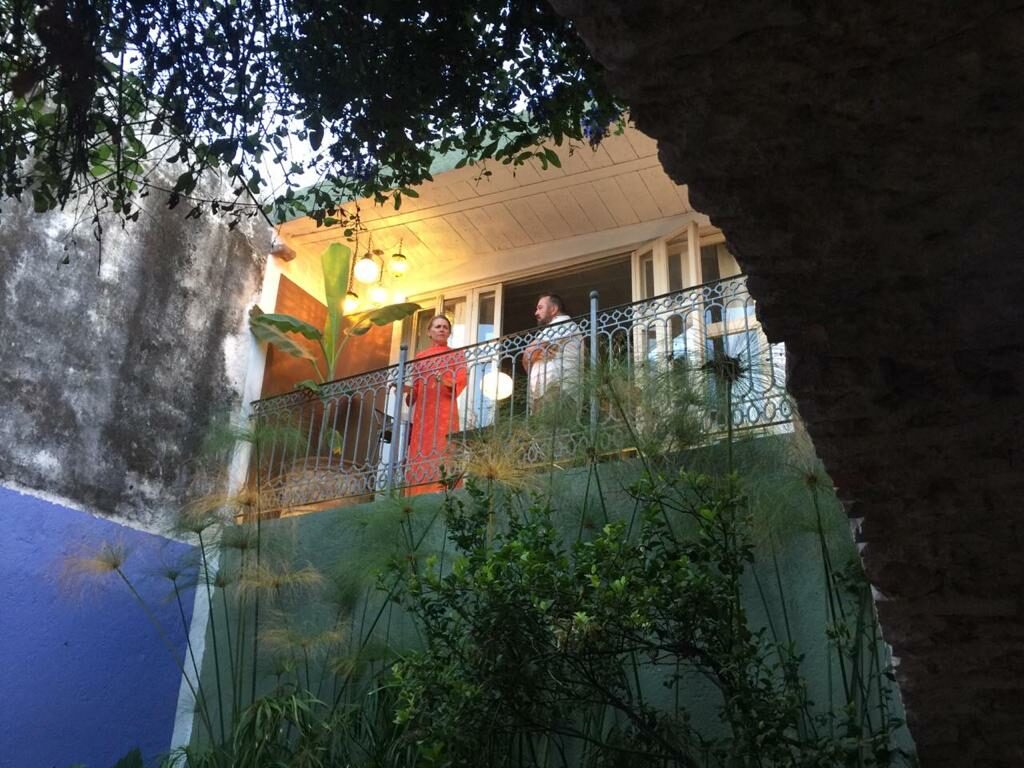
Rocío Meré and Román García in A Streetcar Named Desire. Photo by Lorena Meeser.
Betrayal
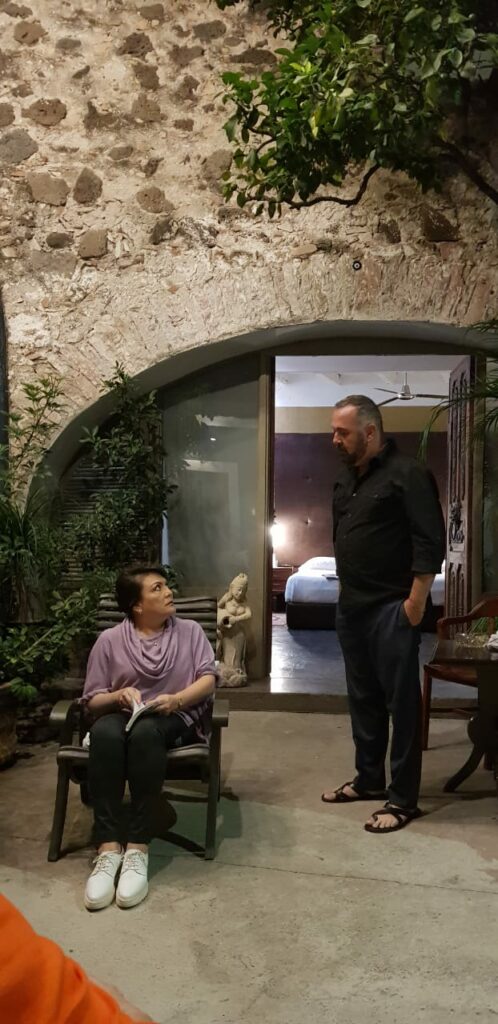
Mónica Guerrero and Pepe Homes in Betrayal. Photo by Lorena Meeser.
Harold Pinter, an extraordinary English playwright who won the Nobel Prize for Literature in 2005, wrote Betrayal in 1978. The plot of Betrayal integrates different permutations of betrayal related to a seven-year affair involving a married couple. Its subject is the lie as infection, as metastasis; it heightens the fact that the play is about the labyrinthine nature of betrayal. The plot tells the story of two broken couples, who preserve appearances betraying their principles, convictions, dreams, and emotions, living in homes that do not exist. The fascinating part of the text is its informative gradation: the way in which Pinter narrates the progress of that black tide by showing the slits through which the passion has escaped, through a dialogue that reveals the true feelings behind a mask. At the center of this symmetrical structure, the “Venice scene” shines like a paradigm, in which Robert discovers, by chance, his wife’s deception. Pinter’s theatre enjoys words but also silences. The pauses usually evoke a mute language full of emotions, mystery, and drama. They reflect the character’s censorship, what he or she could not or would not say.
Actors: Mónica Guerrero and Pepe Homs.
Gastronomic tasting of the authors’ favorite food
This great theatrical tour begins with a glass of wine to accompany the four scenes and is complemented by a dinner that explores the culinary culture of the Short Distances locations. It begins with the towns of Mississippi, where Tennessee Williams lived during his childhood before he moved to New Orleans, where he spent most of his adult life writing and enjoying dinners. The cuisine of New Orleans is the result of a multicultural fusion of the French inhabitants and the Native American and African influences. Williams was a frequent guest at Creole haute cuisine restaurants such as Arnaud’s and Galatoire’s. The menu is created by Laura Nicholas, who did extensive gastronomic research on the time and the tastes of the dramatists.
This post was written by the author in their personal capacity.The opinions expressed in this article are the author’s own and do not reflect the view of The Theatre Times, their staff or collaborators.
This post was written by Lorena Meeser.
The views expressed here belong to the author and do not necessarily reflect our views and opinions.





